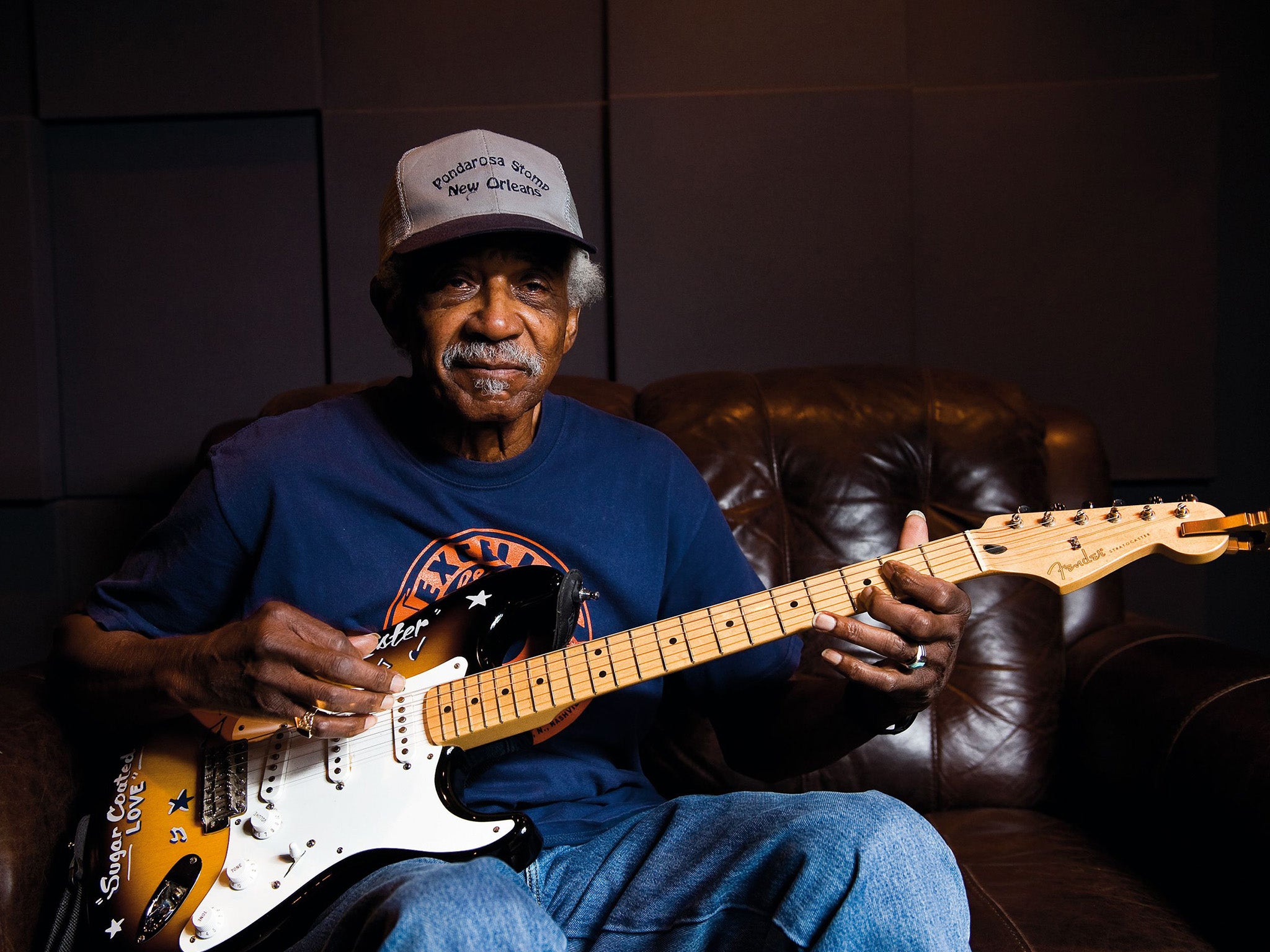Lazy Lester: swamp blues pioneer who enjoyed a late renaissance
The Baton Rouge bluesman took from Cajun and country on his classic 1950s singles before quitting the music business – only to reappear in the late 1980s with critically regarded albums and live performances

Your support helps us to tell the story
From reproductive rights to climate change to Big Tech, The Independent is on the ground when the story is developing. Whether it's investigating the financials of Elon Musk's pro-Trump PAC or producing our latest documentary, 'The A Word', which shines a light on the American women fighting for reproductive rights, we know how important it is to parse out the facts from the messaging.
At such a critical moment in US history, we need reporters on the ground. Your donation allows us to keep sending journalists to speak to both sides of the story.
The Independent is trusted by Americans across the entire political spectrum. And unlike many other quality news outlets, we choose not to lock Americans out of our reporting and analysis with paywalls. We believe quality journalism should be available to everyone, paid for by those who can afford it.
Your support makes all the difference.In 1956, the owner of a record label suggested a promising musician change his name to attract more attention. The switch – from plain old Leslie Johnson to Lazy Lester – summed up the Louisiana native perfectly. Lazy Lester had the talent to be a great blues performer but never really applied himself. If it came easy that was fine, but otherwise he was content driving a truck, working in a store or simply fishing for hours on end.
Lester, who has died aged 85, was heralded by the New York Times as the “architect of the swamp blues“.
When I saw him at the Philharmonic Hall in Liverpool in 2012, he was content to let a local musician Al Peters play harmonica for him. Lazy Lester was living up to his sobriquet.
Leslie Johnson was born into a farming family in Torras, Louisiana on 20 June 1933 and was raised in Baton Rouge. He listened to blues, country (especially Jimmie Rodgers) and Cajun music, all of which became part of his style. When he was working in a grocery store, he bought a harmonica and copied what Little Walter was playing on his instrumental “Juke” (1952). He made some public appearances as part of a local band, the Rhythm Rockers.
In 1956 he saw Lightnin’ Slim perform. The next day he met the bluesman on a bus; Slim was going to a recording session for Jay Miller on the Excello label in Crowley, Louisiana. Lester asked if he could attend the session, and when the harmonica player, Wild Bill Phillips, failed to turn up, he stepped in. Miller was so impressed that he invited Lester to sessions with Tabby Thomas, Lonesome Sundown and Slim Harpo and offered him his a recording contract. He made the makeshift percussive sounds on Harpo’s “I’m a King Bee” (1957) and “Baby Scratch My Back” (1965).
“I never played a full drum set,” Lester told me in 2012, “I just played whatever I put my hands on – a cardboard box or a saddle. On ‘I’m a King Bee’, I was hitting a cardboard box with a newspaper and we got a snappy sound. On ‘Baby Scratch My Back’, I’m playing the congas and a chlorine block for a swimming pool. I had a finger with a penny taped on it and that was making a clicking sound as I was tapping away. These are the easiest gigs in the world as you don’t have to set anything up.”
Lazy Lester’s first singles, all self-penned, were “I’m Gonna Leave You Baby”, “Go Ahead” and “I Told My Little Woman”. His classic 1958 single combined “I’m A Lover, Not a Fighter” and “Sugar Coated Love”, both written by Miller. Both songs have been recorded by rock groups, notably the Kinks and the Fabulous Thunderbirds respectively. Lester became disillusioned as he was not making much money from his records.
In 1966 Lester began a series of odd jobs, first in Chicago and then Pontiac, Michigan where he struck up a relationship with Slim Harpo’s sister. A local BBQ named their premises after him, Lazybones, but he didn’t pay much attention to his musical career until he played some UK dates in 1987. He made an album the same year, the award-winning Rides Again, produced by Mike Vernon for the Blue Horizon label.
He followed it in 2000 with Harp And Soul. In 2001, he made Blues Stop Knockin’ with Jimmie Vaughan of the Fabulous Thunderbirds. In 2003 he was part of a blues show, Lightning in a Bottle, filmed by Martin Scorsese. His last appearance was earlier this year in a US TV ad for online car insurance.
He is survived by his partner Pike Kaksonen and daughter, Kay.
When I saw him perform in 2012, he played guitar and harmonica and sang in a gnarled voice that sounded like it had seen the world. He said, “With this gravel voice, I go round picking rocks out of my ears.” If someone shouted out a request, he would say “£5” and then sing it. During the interval, he was in the gent’s toilet singing “Tonight The Bottle Let Me Down” for free. He told the audience his eyesight was failing and he needed a cataract operation – but “I’m 79 and I’ve seen everything I want to see”.
Leslie Carswell Johnson (Lazy Lester), blues musician, born 20 June 1933, died 22 August 2018
Subscribe to Independent Premium to bookmark this article
Want to bookmark your favourite articles and stories to read or reference later? Start your Independent Premium subscription today.
Join our commenting forum
Join thought-provoking conversations, follow other Independent readers and see their replies
Comments